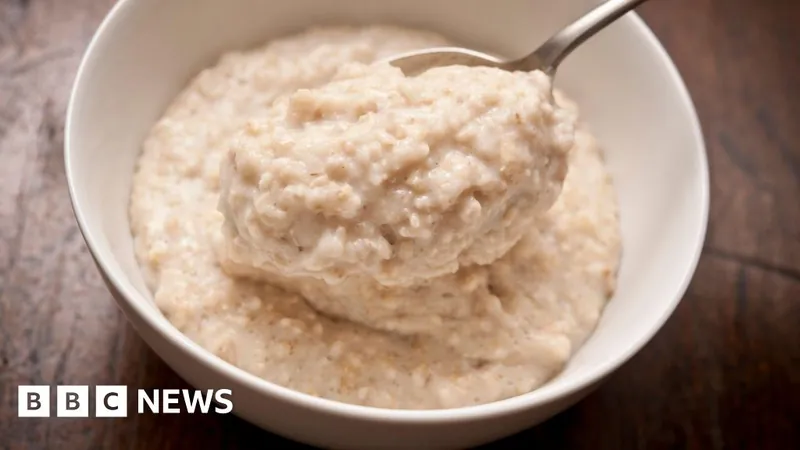
New Junk Food Ad Ban Targets Porridge and Crumpets - What It Means for Childhood Obesity
2024-12-04
Author: Rajesh
Introduction
In a bold move aimed at tackling childhood obesity, the UK government has announced a new ban on ads for certain "less healthy" food items, including popular breakfast staples like porridge, crumpets, and various cereals. This legislation, set to take effect in October 2025, will prohibit paid online advertisements and television commercials for these items before 9 PM.
Context and Background
The initiative comes in response to alarming statistics from the NHS that reveal nearly one in ten children in reception classes is classified as obese, and one in five children experiences tooth decay associated with excessive sugar intake. The ban is part of a broader strategy to limit children's exposure to foods high in fat, sugar, or salt, which are linked to rising obesity rates.
Scope of the Ban
Products falling under this newly defined category of "junk food" include not just crumpets and sugary cereals, but also fast foods, soft drinks, pastries, cereal bars, and sweetened yoghurts. Notably, this means that even items perceived as innocuous, like crumpets and pancakes, are now being scrutinized under this legislation.
Support and Criticism
Renowned chef Thomasina Miers has come out in favor of the ad ban, calling it a "bold" statement against the influence of big food corporations on dietary choices. She argues that the significant financial burden of food-related chronic diseases—estimated at £268 billion annually—justifies such interventions. However, Miers criticized the proposal for not going far enough and urged the government to take more decisive actions in reforming dietary habits.
Critics of the ban, such as café owner Prasanna Callaghan, express concerns about its implications for small businesses. Callaghan argues that categorizing crumpets as junk food misrepresents their nutritional value and politically stigmatizes them, potentially driving customers away. Similarly, some parents believe the focus on advertising restrictions misses the mark, advocating instead for education and encouragement for families to prepare healthy meals together rather than having the government dictate what can be advertised.
Potential Impact
Supporters emphasize the potential impact of the legislation, suggesting it could lead to a reduction of 7.2 billion calories from children's diets annually. Health Secretary Wes Streeting hailed the ban as a critical step toward prevention-focused healthcare, aiming to give every child a healthy start in life.
Conclusion
While the government remains committed to the advertising ban, the debate continues: Will restricting ads on seemingly benign foods like crumpets genuinely alter children's eating habits, or will education and parental guidance prove more effective in the fight against childhood obesity? The answers may determine the future of dietary health in the UK.





 Brasil (PT)
Brasil (PT)
 Canada (EN)
Canada (EN)
 Chile (ES)
Chile (ES)
 España (ES)
España (ES)
 France (FR)
France (FR)
 Hong Kong (EN)
Hong Kong (EN)
 Italia (IT)
Italia (IT)
 日本 (JA)
日本 (JA)
 Magyarország (HU)
Magyarország (HU)
 Norge (NO)
Norge (NO)
 Polska (PL)
Polska (PL)
 Schweiz (DE)
Schweiz (DE)
 Singapore (EN)
Singapore (EN)
 Sverige (SV)
Sverige (SV)
 Suomi (FI)
Suomi (FI)
 Türkiye (TR)
Türkiye (TR)